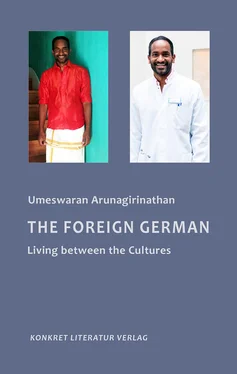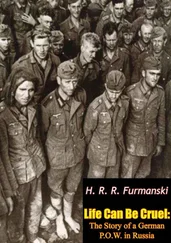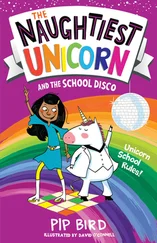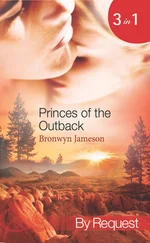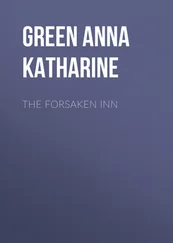After about 40 minutes we arrived at Nala’s house. My mother opened the door. My sister’s children stood beside her and clung to her sari. The joy of our reunion was great. She took me in her arms and continually stroked my face.
On account of the excitement of seeing my parents again, I had eaten nothing all day. As I suspected, my mother had gotten up very early and had begun to cook Tamil dishes for me. It was wonderful to enjoy a meal cooked by my mother after such a long time. My tongue burned after the delicious and unnecessarily hot spicy food. Mother could scarcely believe that the food in my new homeland was not so spicy as in Jaffna. Happily, she had also made “payasam”, a sweet dessert that cooled my tongue. After dinner we had tea – tea with milk and a lot of sugar. That tasted fantastic and took away the last spiciness of the meal.
We sat in my sister’s windowless living room by artificial light. Most of the houses in my sister’s neighbourhood are very small, the fewest with a garden in which children can play. I was sad that my sister’s children could not grow up with the outdoors like we had back then in Sri Lanka, a life like before the civil war, when one could play hide and seek under the coconut palms and the mango trees; I wished it were so for my nephew.
My father spent most of his time in his old age in Sri Lanka outdoors, in front of the house in the shade of big trees. There he conversed with neighbours about God and the world, and, of course, the war and the hope of a better future. He only came inside for meals. Now he was visiting a land where life was lived in narrow quarters. He and my mother could only sit in the living room and watch Tamil TV the whole day. My mother was familiar with this habit from her first visit, but for my father it was quite new. And what he saw and experienced did not coincide with the picture he had made of his daughter’s life in London.
The children of my father’s youngest brother also live in London; and we visited them one after the other. Again and again the time before the war was recalled, how lovely it had been in our country – and every time we were overcome by a feeling of sadness and nostalgia.
My father was the eldest son in his family, and thus enjoyed great respect from his younger brothers and their children. They cooked his favorite dishes for him, not taking his diabetes into account. I didn’t like it, but every happy hour for my parents was more important than the stern look of the doctor. Secretly they served brandy after the meals, which my father loved to drink. As a child I didn’t like it when my father drank at home. Often I had put sand and pebbles in his alcohol bottles or sometimes simply threw the bottles away. Now he was so old and so sick that his feeling contented had absolutely top priority before my dislike of the alcohol.
My parents and I slept in my sister’s home, in one room. My father on the floor, mother and I shared the bed. We were given two blankets, one for Father and one for me and mother. Everytime when I woke up in the night, I realized I had taken the entire blanket for myself, and mother slept like a fetus, arms and legs pulled up close to her body. I covered her again with our common blanket and tried to sleep again.
It was a very unusual situation, sleeping in one room with my parents after such a long time. The last time must have been the summer of 1990 in our old house in Puthur. I lay in between the two of them, one leg over one of the other. Only then could I fall asleep. I had to think of that as I tried to get to sleep. I needed to tell them how protected I had felt and how proud I was of them that they had been able to bring all four of their children to safety. This had cost them considerable sacrifices in their lives.
The next morning for breakfast we had sambal ( a mixture of coconut, onion, chili, pepper, and salt) with white bread. I felt reminded of my schooltime in Puthur, when every morning we had bread and sambal. My mother spent the whole morning washing my father’s laundry in the bath. I thought it was terrible, I could barely watch her and see how she had so little strength, had to do all this washing by hand. She wouldn’t allow help either. That my mother had to torture herself in this way, made me angry. When she was finally finished, I was allowed to help her after all that, with hanging the clothing in the garden on the clothesline between the two pear trees. While doing this I was able to press a lot of water out of the clothes. That showed me how weak my mother had become.
I would like very much to ask my sister and brother-in-law why my mother was not allowed to use the washing machine. But in the home of my bil it was not allowed, in Tamil tradition, to say something, let alone to criticize or even to pitch in. Because he had married my sister, my bil had to be treated with gratitude and respect. Nor even was I allowed to intervene, even when he kicked her while she was holding her one-week baby in her arms. This event caused me sleepless nights. How bad it must have been for my mother to see how her daughter was beaten by her son-in-law. Until today I have not been able to speak with my mother about it.
I was really happy that my bil had not beaten my sister and the children in the presence of my father. He would not have tolerated it. He is against every form of violence and despised parents who beat their children, which is unfortunately the rule in Sri Lanka. Often they beat their children so hard that they have an arm or leg broken. Their brutal violence they try to hide by saying the child had fallen on the steps. Often the children come to school with such bad wounds that the police have to be called in for their protection.
My father had hit me, as far as I can recall, only once or twice with a little stick that broke apart with the first stroke. I had both times the feeling that it had hurt him more than me. As children we had to watch ourselves around our mother. If I misbehaved, I was supposed to keep away from her by at least a meter. My father called out, so that the distance between my back and her hand was to far for her right hand. Usually I ran away from her and climbed up a little tree in the yard.,coming down after she had calmed down. Mostly everything was forgotten, and I escaped the stroke of her right hand.
At out London reunion, my parents got around to the topic that I most dreaded. I should finally agree to a marriage proposal. I had already received several from Tamil parents who lived in Germany, Switzerland or Denmark and whose daughters were medical students. My parents had many times urged me to agree to an arranged marriage with one of these women. My brother told me particularly that these were women of the best castes.
I didn’t know how to speak with my parents, who were molded by the Hindu faith and Tamil culture, about my own life expectations. While I was studying I would base my hesitation to marry on the fact that I had to concentrate on my studies and in addition, the money I had saved was sent to Sri Lanka for their support. For a marriage there really remained nothing at all. After my studies, while I wrote my doctoral dissertation, I had to send even more money home so that my father’s hospital expences could be paid. I barely had enough money for myself, let alone for a family. I tried not to let the topic of marriage come up during our telephone conversations.
What distressed me especially on this topic was the absolute acceptance of the caste system. From birth to death one belonged to a specific caste as well as an appropriate professional group. Priests are at the top of the caste system; only he who comes from a priestly family can become a priest. Large landowners belong to the upper caste, while a field laborer comes from a family that has worked in the fields of living loved ones for generations. The laborer can only come from a family of laborers. And both of these professional groups belong to the lowest caste. In Sri Lanka this system may still be valid. But for Tamil refugees who have come to Europe, this rigid caste system is no longer meaningful. Most refugees, independent from this caste membership, have to work first as dishwashers, kitchen help or cleaning personnel. Many of them have even been able to offer their children a good education, and it can happen that the children of former field laborers become doctors or lawyers. It is very hard for my parents to see the overcoming of caste barriers as a positive development, and not to judge people by their caste membership. This thinking seems to be too deeply engraved in their minds. Arguments can’t convince them otherwise.
Читать дальше
